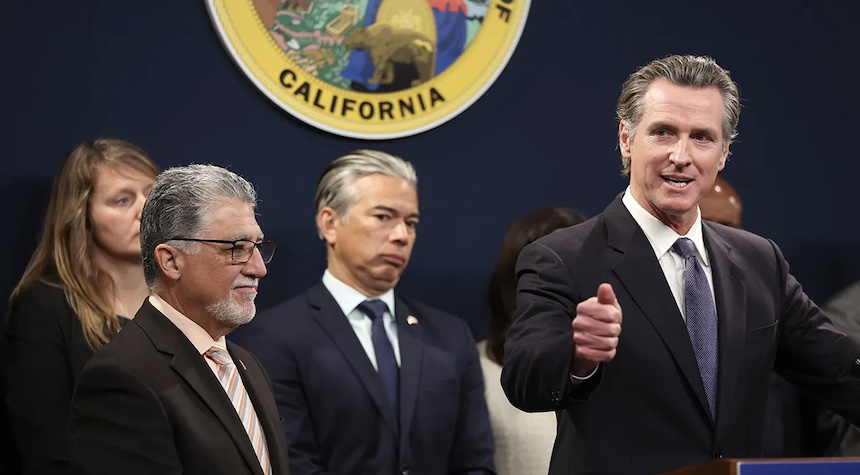California Attorney General Rob Bonta wants to change the Federal Trade Commission’s regulations so that all U.S. businesses must adhere to California standards for when they can call themselves “green.”
In a letter sent last week, Bonta, along with 15 other AGs from blue states, asked FTC Chairwoman Lina K. Khan to update the “Green Guides” or Guides for the Use of Environmental Marketing Claim. Bonta stated that making it more difficult for companies to claim to be “green” was a necessary step to “bolster consumer protection legislation against advertising that overstates the environmental benefits,” also known as “greenwashing.”
Bonta said the FTC should adopt California’s model, which is “a leader in reducing waste and enacting laws that are of the highest standard, as well as protecting and preserving the precious natural resources.”
Bonta stated in a press release that “the FTC’s Green Guides need to be updated and strengthened so consumers and businesses have accurate information on which to base their decisions.”
He said: “We urge the federal government to go further in developing standards that protect people from false information and establish a strict baseline for environmental marketing.”
Bonta wants to “expand the scope of the Green Guides” to examine how standards for environmental marketing claims could be clarified, strengthened, and better supported by real environmental benefits.
Bonta was criticized by his Republican counterpart, who said that the request was out of bounds for Attorneys General.
Andrew Bailey, Republican AG of Missouri, stated that “attorneys must ensure that federal bureaucrats who are not elected cannot just issue any rule they wish in order to advance their radical climate agenda” and should not encourage such people.
The AGs wrote, “The stated goal of the Green Guides was to help marketers avoid misleading environmental claims under Section 5. of the Federal Trade Commission Act.”
The Guides are now playing an important part in determining the limits of such claims, they stated.
They wrote: “Indeed as our States strive to address critical issues – climate change, pollution of air and water and emerging contaminants – the value of baseline standard for evaluating whether or not environmental marketing and promotional claims are misleading and therefore potentially illegal under consumer protection laws can’t be overstated.” Such unscrupulous marketing undermines our efforts.
The states, for example, are asking the FTC to require that businesses who want to claim renewable energy must “underwrite it by an actual environmental benefit.” This means that marketers making renewable energy claims have to actually purchase and use renewable energies.
The AGs want, among other things to include scientific standards as well as the practical limitations of large-scale composting.
Bonta stated that the FTC should clarify that the term “recyclable”, as intended by the FTC, means exactly what it does and what consumers believe it to be: when a consumer disposes of a “recyclable” product properly, it’s actually recycled.
Bailey stated that these changes would not only add to the burden of companies but would also bypass Congress in a way that was unconstitutional.
The FTC did not immediately respond to our request for comment.


